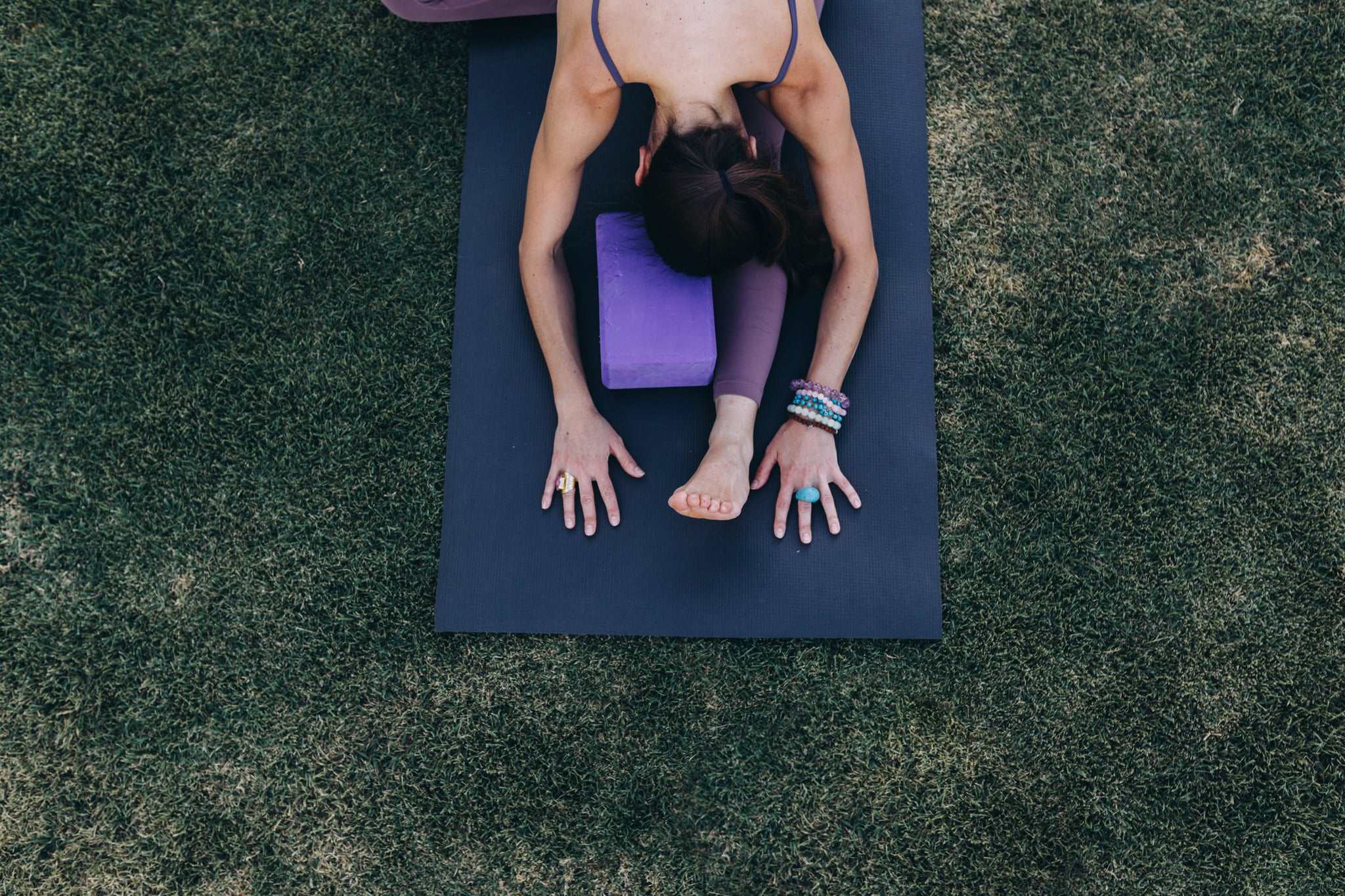There’s perhaps nothing more soothing than a good yoga class, especially when your muscles are tense and sore or you’re under a lot of stress. But if you’ve ever laid your head on a yoga block mid-pose and suddenly been unable to think about anything other than the germs crawling all over it, you’re not alone. To help you better stay in the zone, POPSUGAR asked a trainer just how often you should clean your yoga blocks and what products to use to prevent damaging them.
How Often Should I Clean My Yoga Blocks?
Just like your yoga mat can become smelly and bacteria-ridden if it isn’t cleaned regularly, yoga blocks can also get kind of gross, so make sure you’re cleaning them from time to time. Just how often is that necessary? It depends.
According to Sarah Pelc Graca, an NASM-certified personal trainer and weight loss coach, you should consider how often you use the blocks and how sweaty you typically get during your workouts. “If you’re using them multiple times a week, I’d recommend washing once every week or two, but if you’re using them less frequently — say, once a week — you can wash them once a month,” Pelc Graca told POPSUGAR. Likewise, if you take hot yoga, you probably need to clean the blocks more frequently than you would when taking gentler yoga classes.
How to Clean Yoga Blocks
The best practices for cleaning differ slightly depending on whether your blocks are made of foam, wood, or cork. The good news? You probably already have everything you need to get the job done, and as long as you’re cleaning the blocks fairly regularly, you probably won’t have to worry about them becoming too badly stained or odorous.
“For a foam yoga block, I recommend mixing a few drops of dishwashing soap in water, and using a towel dipped in the soapy water to clean your block,” Pelc Graca said. Similarly, a simple damp cloth should be enough to clean wood blocks. “Because wood soaks in water, make sure to not use excess water,” she added. Cork blocks, on the other hand, require a bit more care. “Since cork is eco-friendly and natural, it requires a different cleaning process than other yoga blocks,” Pelc Graca explained. “You can use a mild, organic, natural cleaner if you need, but water and a cloth usually does the trick. I do not recommend soap on cork yoga blocks.”
Pelc Graca added that you can also use tea tree oil as a substitute for soap when cleaning yoga blocks. “It is a natural and organic disinfectant, so it kills germs and bacteria without the harsh effects of some soaps,” she explained. However you clean them, and whatever the material, be sure to allow the blocks to air dry.
